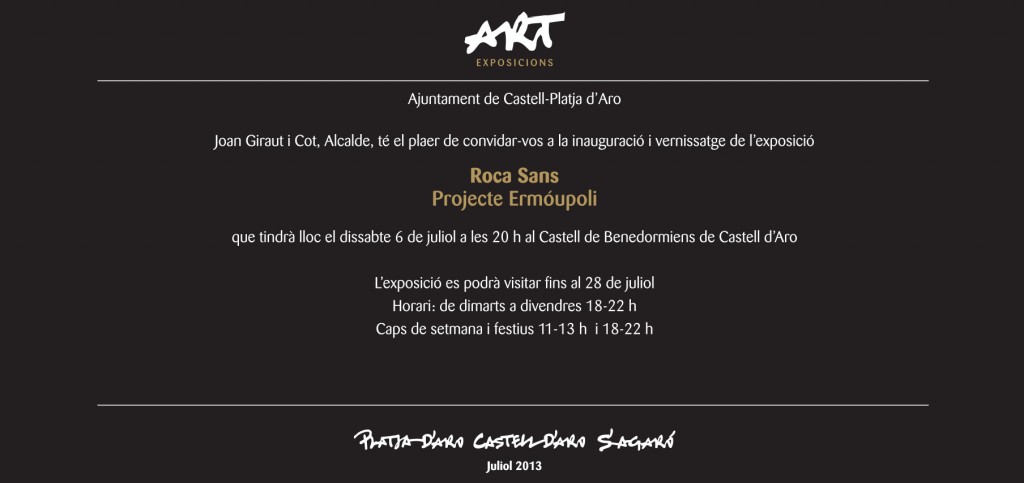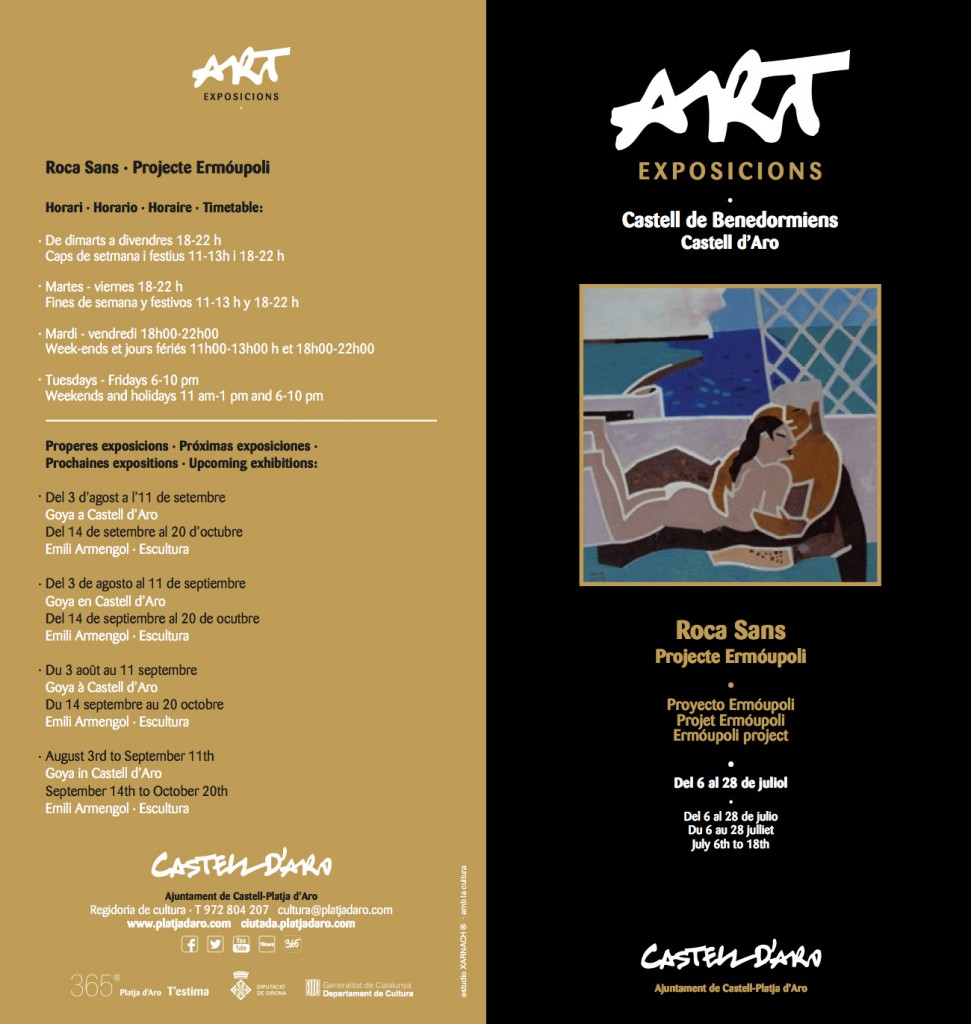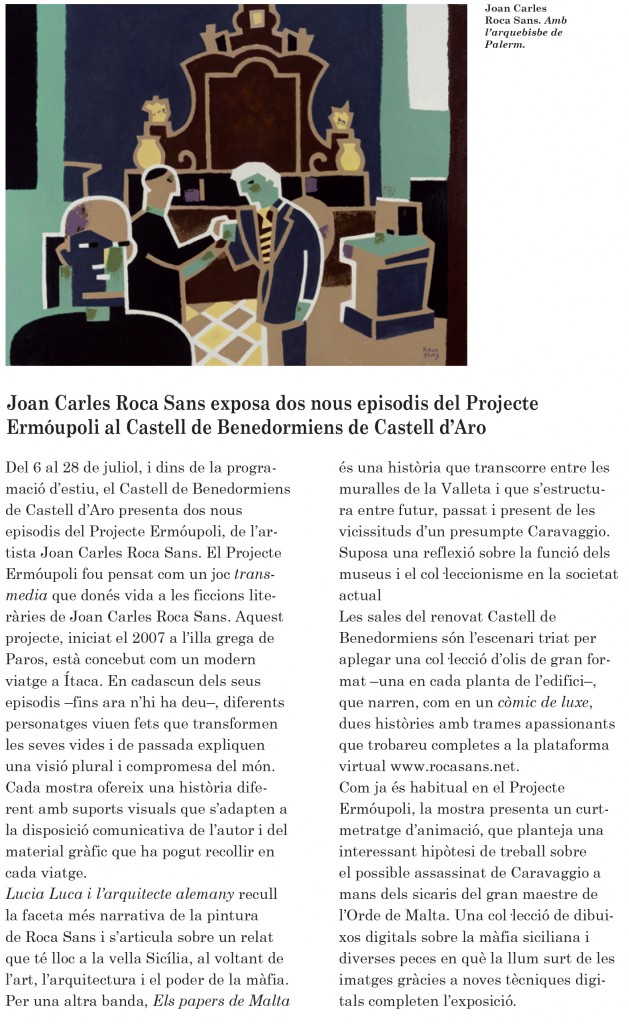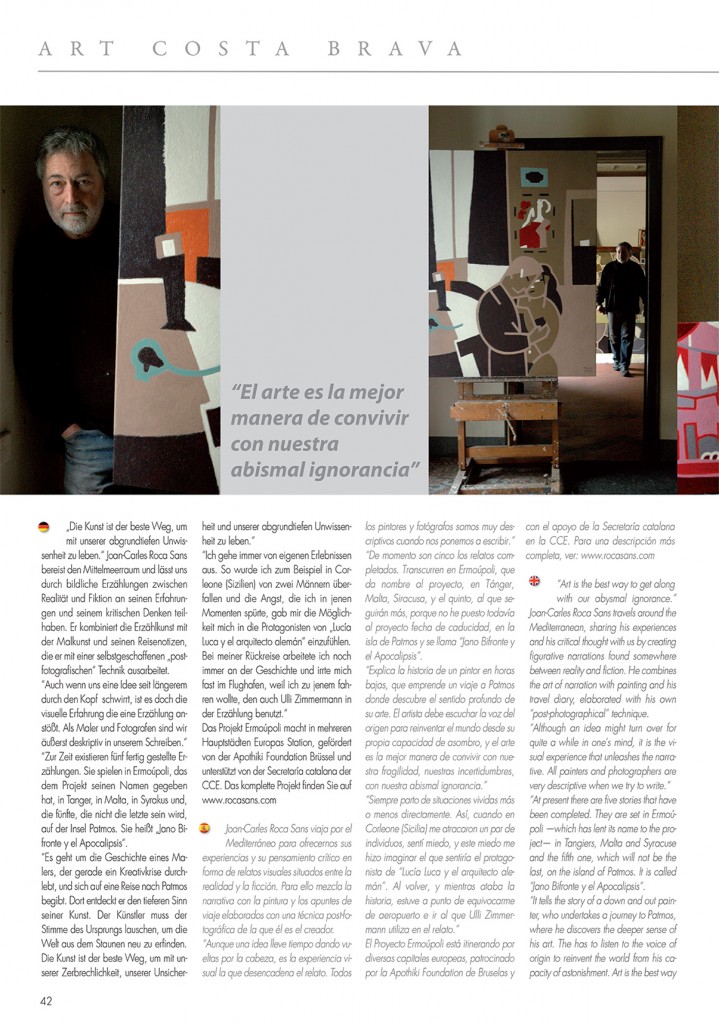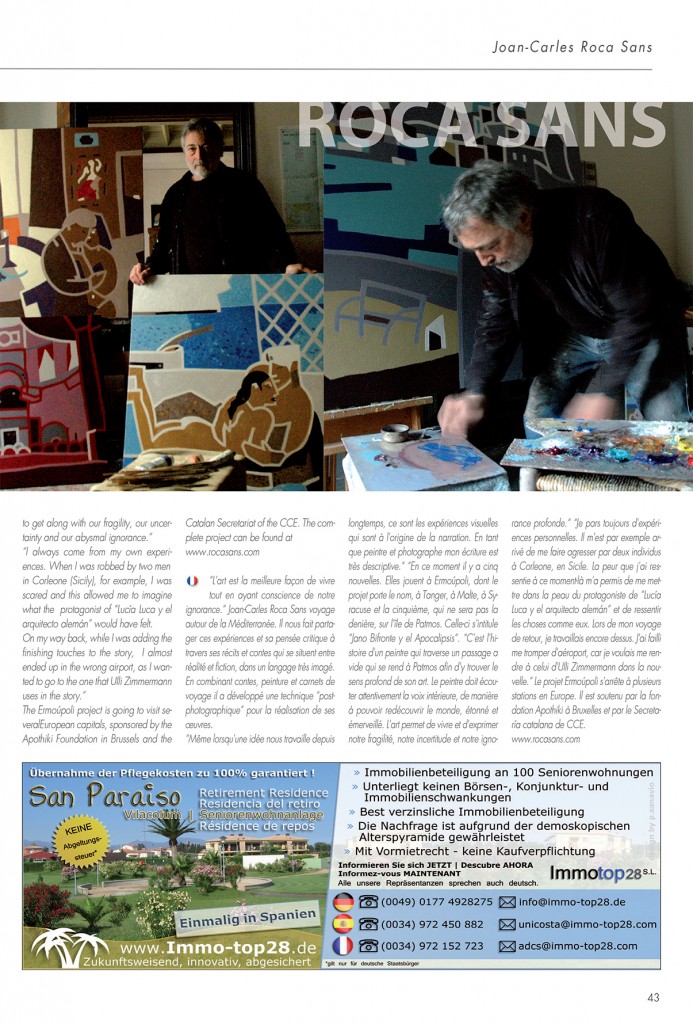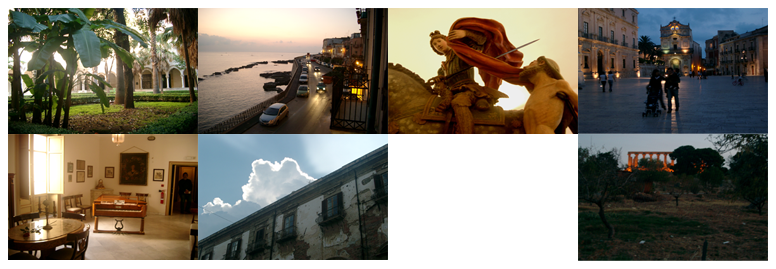
SYRACUSE (ITALY). LUCIA LUCA AND THE GERMAN ARCHITECT
Fragment of the homonym tale by Joan C. Roca Sans
The fog, the famous Erice fog that often covers the Norman castle, the duomo and the steep streets of the town with its almost thirty churches, had arrived on time that day for the appointment. Ulli headed for the meeting with the architect Vittorio Greco and the contractors at the Centre of Baroque Studies. When it ended, he waited for the clock to chime twelve and the official ran over to tell him his car had arrived.
A tall young man with a shaved head, wearing dark trousers and a jacket and sports shoes got out of the black Mercedes CDI parked in the middle of San Martino Square. He quickly walked round the back of the car and, while the person in charge flanked the grille of the front portico of the church so that Ulli could get out, he opened the rear door and introduced himself.
“I’m Marcello Sultano. I’ve been sent by Signore Lo Manta. I am at your service. Would you like to put your luggage in the boot?” “I only have this overnight bag and my briefcase. I’ll keep them with me. Thank you.”
The car sped along the motorway towards Palermo. Ulli remembered that they first needed to stop off at the Theatines Oratory. He told Marcello who agreed. They went down Corso Vittorio Emanuele till they got to the building. With the car parked on the corner, Ulli quickly climbed the stairs that led inside from the door and was impressed by the size and the setting of the oratory, which looked like a theatre, with red curtains and balconies.
In the half-light, a man was waiting who, without meeting his eyes, asked him.
“Mr Zimmermann? Here is the pouch with the cameo you have come to collect. Regards to the people of Caltanissetta.”
While starting to go down the stairs towards the entrance, Ulli’s head was going round and round in circles. He suddenly stopped and retraced his steps to ask, “What cameo are you talking about? Wasn’t it a silver cross?” He then realised that the man had disappeared through a side door, behind a box.
“There must be some confusion”, he thought, while Lo Manta’s chauffeur saw him coming out of the Oratory and got out to open the door for him.
“Where are we going then, in the end?” he asked the chauffeur who was starting the car.
“Signor Lo Manta will receive you in his house, on the road to Monreale. Although the interview was planned several weeks ago by the secretary’s office of the metropolitan archbishopric, I’ve only just found out where it will take place. I’ve just had a phone call to tell me. We’re on our way there.”
It was too much for him. A wave of cold sweat took over Ulli’s body. A silver cross or a cameo? A visit planned weeks ago with a man who he did not even know existed until two days ago?
He felt the same feeling of uneasiness as the previous Friday in Portiani. He suddenly remembered the words of Lucia about the incident in the Piazza Archimede concerning the immigrants. “The mafia only gets involved when there’s money in it.” In his briefcase he had matters that involved a great deal of money. Without a doubt, the security measures would be far less strict than in a private house that in the Governor’s Palace and even more so if the interview was to be backed by an archbishop.
He blurted out to the chauffeur “Marcello, stop here for a moment, please. I’ve just remembered that I need to do something else”. When the car stopped, Ulli grabbed his hand luggage and jumped out of the car, leaving the briefcase behind. He wanted to go back and get it, but he thought it was too late. He just had time to warn the chauffeur that he was not responsible for its content, and that he should be careful. When he came to the stairs that went down to the Vucciria, he rushed down them and hastened through the market, overwhelmed by a feeling of panic similar to what he had felt on the night of the frustrated assault, but much more intense.
When he got to San Domenico Church, feeling slightly calmer as nobody seemed to be following him, he sought out the silence of the cloister to call Lucia. “This person’s phone is switched off. Please try later or send a text”, the recorded voice told him insistently.
“Maybe she’s in the shower or driving” he thought. “I’ll try again in five minutes.” It was two o’clock, three hours before the interview in the Episcopal Palace. He did not know whether or not he should go. He desperately tried to call Lucia three or four more times but always got the same recorded message. He left the cloister and found a discreet hotel, on a second floor in the Vucchiria.
Nobody would find him there, he thought. He left his case in the room, where he recovered while thinking about what had happened. He needed proof, like he had needed after the frustrated attack in the Corleonese. With half an hour to go before it was five o’clock, he dialled Lucia’s number a few more times and, as he got no reply, he set off towards the Archbishopric.
© JC Roca Sans































































